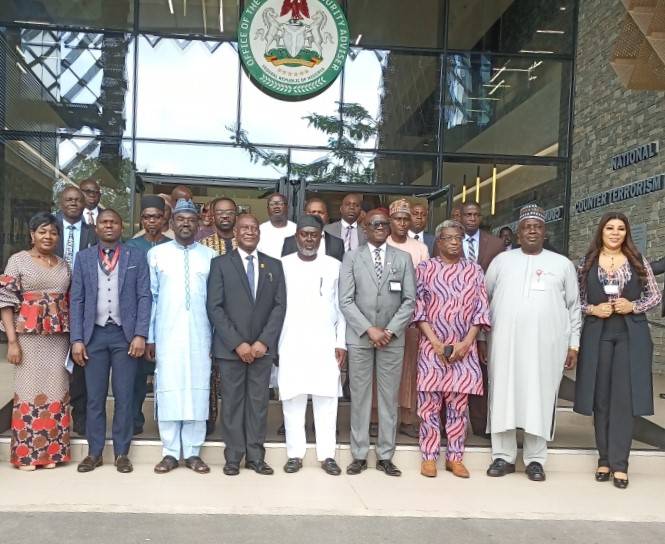The Director -General, National Orientation Agency (NOA), Lanre Issa-Onilu, has advocated the reactivation of the defunct National Information Centre to enhance information sharing on the counter-terrorism operations in the country.
Issa-Onilu, who was represented by the Director of Press, NOA, Mr Paul Odenyi, at the opening the Strategic Media Engagement on counter-terrorism with media managers and editors organised by the National Counter Terrorism Centre (NCTC), on Wednesday in Abuja.
He said the information centre that was being coordinated by NOA at the time made a difference in countering wrong narratives in the fight against terrorism in the North East.
He said that the agency had community orientation and mobilisation officers would send in reports on the happenings in very remote parts of Borno, Yobe and Adamawa, which often formed what they would brief the media.
According to him, it helped because the media was not as represented as the military or the police or even the NOA.
“And so they would need every bit of information that comes from at least official sources to make the report accurate and reliable.
“As members of the Joint Intelligence Board, we understand what is expected of us and regularly operationalise our activities to serve the purpose of our membership on the board.
“NOA believes that non-kinetic operations hold about 60 per cent of the success factor in the war against terror.
“And so in the last eight months, we have made deliberate efforts to raise platforms that address this.
“But looking at it, what we discovered was that about 75 per cent of our population were young people below the age of 35 and they were not truly in the conversation around what is going on in Nigeria,’’ he said.
The NOA boss said the agency had built platforms that would engage with the citizens, especially the young ones, adding that those young people do not wait for the media to frame the narrative.
According to him, they also make effort to frame what people are saying and what they want to be said.
“So while we are engaging with the media, because for a long time we know that the media has a part of framing the narrative.
“But today, the digital citizen can make statements that will go viral and all of us will be quarrelling and talking about it for the whole of this month,’ he added.
The Chairman Board of Trustees, Centre for Crisis Communication, retired Maj -Gen. Christopher Olukolade, said there was need for reporters on the field to always be in agreement with the gatekeepers and editors in deciding what goes out to the public.
Olukolade said there were instances where the reports being published were at variance with what was shared or what was seen in the field, adding that the situation should naturally give concern to the security sector.
“And when we have to meet people we think we have related with, and I express surprise that why this report this way, despite the volume of information made available to you, despite what you witnessed, why is the story the other way, the explanation quite often is that I did my report, but my editor, the guy in the office, feels he can report it the other way.
“There are instances that reporters will say, yes, after I have written whatever I wrote, they said maybe you have collected bribe from them that is why you are reporting this way.
“And so the story is planted different from the reality, maybe because of our own mindset.
“I think that forums such as this will improve that, so that with better understanding, we can continue to report more objectively on what happens in the field.
“So at the Center for Crisis Communication, we constantly try to make available to our friends in the security sector a regular media review that relates to the security situation,” he said.
Olukolade, former military spokesperson, said that the media had the responsibility of shaping the perception of the public about the military and other security agencies who are engaged in counter-terrorism operations.
He said there was need to improve public perception about the efforts of the government while also improving the efforts of managing the situation in the field.
“So, public awareness will normally and continue to utilise the awareness we raise by our reporters,” he added. END

